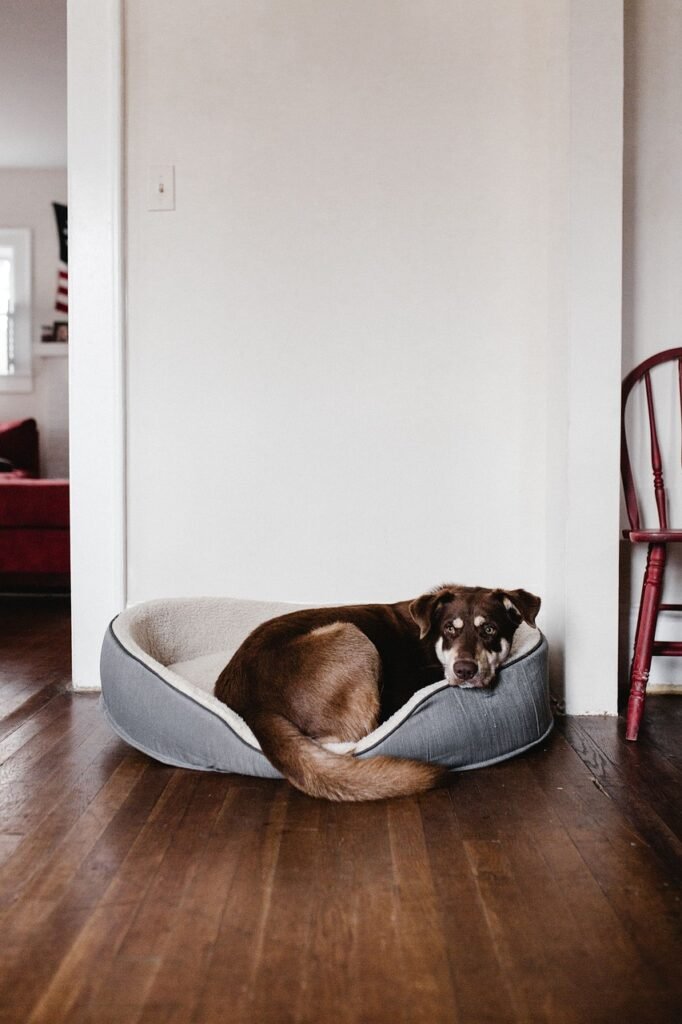As a landlord in the UK, you may often face requests from tenants wanting to keep pets in your rental property. With an estimated 44% of UK households owning at least one pet (a figure likely to have increased during the pandemic), it’s a common query. However, many landlords have valid concerns about potential noise, damage, fleas, and allergies. So, what are your rights when it comes to accepting or refusing pets? Let’s explore.
The Law on Pets in Rentals
Contrary to some news reports, blanket bans on all pets are not allowed under the Consumer Rights Act 2015. However, as a landlord, you can refuse a tenant’s pet request, provided that:
- The tenancy agreement states pets are only permitted with the landlord’s consent (which cannot be unreasonably withheld)
- The refusal is based on reasonable grounds
Most well-drafted tenancy agreements include such a clause. If this wording is absent or has been amended to prohibit all pets without exception, the tenant can keep a pet without seeking permission.
Key Takeaway:
- Landlords cannot issue blanket pet bans, but can refuse requests on reasonable grounds
- The tenancy agreement should state pets are allowed only with the landlord’s consent
- Landlords should consider pet requests fairly and not unreasonably withhold permission
Benefits of Allowing Pets
There are several compelling reasons to position yourself as a pet-friendly landlord:
- Pet ownership is known to benefit the mental and physical health of tenants, potentially leading to better property upkeep and landlord-tenant relationships
- Tenants with pets may stay longer due to the difficulty of finding pet-friendly rentals, reducing voids and marketing costs
- Landlords can justifiably charge slightly higher rent to cover any additional wear and tear
Embedded image: A content tenant with their well-behaved dog in a rental property

Potential Drawbacks
While relatively rare, poorly behaved pets can cause issues such as:
- Damage to the property
- Disruptive noise for neighbors
- Flea infestations or allergy concerns for future tenants
Thorough suitability checks can help mitigate these risks.
Assessing Pet Suitability

Before approving or denying a pet request, consider factors like:
Type and Breed
Small pets like goldfish are unlikely to cause damage, making refusal unreasonable. For dogs, check if the breed is listed under the Dangerous Dogs Act 1991. If so, ensure it’s on the exemptions register before granting permission.
Assistance Animals
Animals assisting with a tenant’s disability are not legally considered pets. Refusing them could be discriminatory under the Equality Act.
Pet Character and Behavior
For pre-existing pets, request references from previous landlords about the animal’s behavior and any property damage. You can also ask to meet the pet to observe its health, temperament, and noise level.
Vaccinations, Flea Treatments, and Insurance
Evidence of up-to-date vaccinations and regular flea treatments indicates a well-cared-for pet. Pet insurance can provide added reassurance.
Key Takeaway:
- Assess pet suitability based on factors like type, breed, behavior, and health
- Assistance animals must be permitted if required for a tenant’s disability
- References, meetings, and documentation can help inform pet approval decisions
Protecting Your Interests
Before agreeing to a pet, also consider:
Insurance Coverage
Check if your landlord insurance covers pet damage. If not, slightly higher rent could offset potential repair costs. You may wish to recommend tenant insurance providers that do cover pet damage.
Property Lease Restrictions
If you have a leasehold property, especially in a block of flats, check if the superior lease prohibits pets. This would provide reasonable grounds for refusal.
Property Suitability
Evaluate if the property is appropriate for the pet in question. A large dog may not be suitable for a small flat or room-only let, for example.

Documenting Pet Permissions
If you decide to allow a pet, update the tenancy agreement to include clauses covering:
- Details of the approved pet(s) and an emergency caretaker
- Requirements for vaccinations, flea/worm treatments, and any damage
- The process for requesting additional pets
- Expectations for pet behavior and tenant responsibilities
Organizations like Lets with Pets offer sample pet clauses and policies that can be adapted for your agreement.
Thorough check-in and check-out inventories, along with regular property inspections, are crucial for identifying and addressing any pet-related damage.
Frequently Asked Questions
Can I charge a higher rent for tenants with pets?
Yes, slightly higher rent to cover potential additional wear and tear is reasonable. However, you can no longer take a separate pet deposit.
What if a tenant gets a pet without permission?
Issue a warning and request rehoming of the unauthorized pet. If the tenant refuses, this breach of the tenancy agreement could be grounds for eviction.
How should I handle complaints about a tenant’s pet?
Investigate the complaint’s validity. If the pet is a genuine nuisance, work with the tenant to find a solution, such as training or access restrictions. Eviction is a last resort.
Can I refuse a tenant’s request for an exotic pet?
Exotic pets like reptiles and birds may pose unique challenges and risks. You can reasonably refuse if you feel the pet or property is unsuitable, or you’re uncomfortable with the potential liability.
Key Takeaways
- UK landlords can refuse pets, but not unreasonably or with blanket bans
- Pet-friendly properties can attract responsible tenants and justify slightly higher rents
- Thorough suitability assessments help minimize the risks of pet-related issues
- Detailed pet clauses in the tenancy agreement are essential
- Assistance animals must be permitted if required for a tenant’s disability
- Regular inspections and inventories protect against pet damage
In summary, permitting pets in your rental is a personal decision that requires careful consideration of the benefits, risks, and responsibilities involved. By implementing a fair pet policy, screening animals for suitability, and maintaining open communication with tenants, you can successfully navigate the challenges and rewards of being a pet-friendly landlord.




